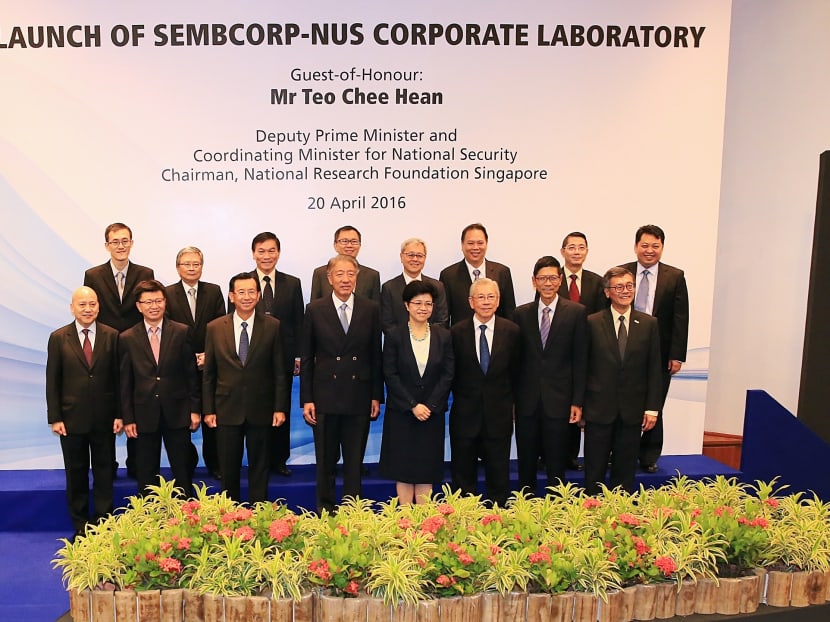Joint Sembcorp-NUS lab to research cutting-edge waste water technology
SINGAPORE — Researchers from the National University of Singapore (NUS) and engineers from Sembcorp will seek to develop cost-effective solutions for waste water treatment and study how to convert waste materials from power plants and incinerators into useful construction and other high-value materials, as part of a new corporate-academic partnership.

Researchers from the National University of Singapore and engineers from Sembcorp will seek to develop cost-effective solutions for waste water treatment and study how to convert waste materials from power plants and incinerators into useful construction materials. Photo: Koh Mui Fong/TODAY
SINGAPORE — Researchers from the National University of Singapore (NUS) and engineers from Sembcorp will seek to develop cost-effective solutions for waste water treatment and study how to convert waste materials from power plants and incinerators into useful construction and other high-value materials, as part of a new corporate-academic partnership.
The joint Sembcorp-NUS Corporate Lab, launched on Wednesday (April 20), focuses on the research and development (R&D) of sustainable and cutting-edge technologies in three areas — power generation, industrial wastewater treatment and water reuse, as well as the transformation of waste into high-value products.
NUS, Sembcorp and the National Research Foundation (NRF) have jointly invested S$60 million in the lab.
This is the sixth joint corporate laboratory supported by the NRF Singapore under its Corporate Laboratory@University Scheme, which supports the setting up of key corporate laboratories through public-private partnerships. Sembcorp is the third Singapore company that is part of the Corporate Laboratory@University Scheme.
Seven research projects have been conceived within the three areas. One project will look at recovering waste materials such as soot and transforming it into absorbent materials for industrial applications, and one will look at developing construction materials from an ultra lightweight cement composite derived from combustion ashes and solid residues. Another project will look at a predictive maintenance system to improve efficiency and reduce emissions of power plants.
“NUS faculty members (will be exposed) to challenging, but important industry research questions and problems. This will enable them to work closely with Sembcorp to devise innovative and practical engineering solutions for sustainable provision of utilities, with an emphasis on water, energy and waste management,” said NUS president Professor Tan Chorh Chuan.
Group president and CEO of Sembcorp Industries Tang Kin Fei said: “If successful, these solutions will not only contribute to the growth of R&D in Singapore, but will also offer significant commercial and environmental benefits and enhanced productivity. These technologies also have good potential to be exported overseas.”
Currently, preliminary testing has been conducted to determine the feasibility of the projects, followed by technical discussions between the collaborators: “We did some preliminary testing on some of the projects. For example, we took some of the ashes to do some pre-testing, chemical composition testing,” said Professor Ng How Yong from the NUS Faculty of Engineering.
Deputy Prime Minister Teo Chee Hean, who is chairman of National Research Foundation Singapore, noted that the collaboration would create 45 new positions for research fellows and engineers, and train 24 PhD students in five years. He said at the launch event: “Through such collaborations, between universities and companies, we seek to align public sector research more closely to industrial needs, to bring about greater positive impact to our society and economy. This could include new products, services or processes, and good jobs for Singaporeans.”






